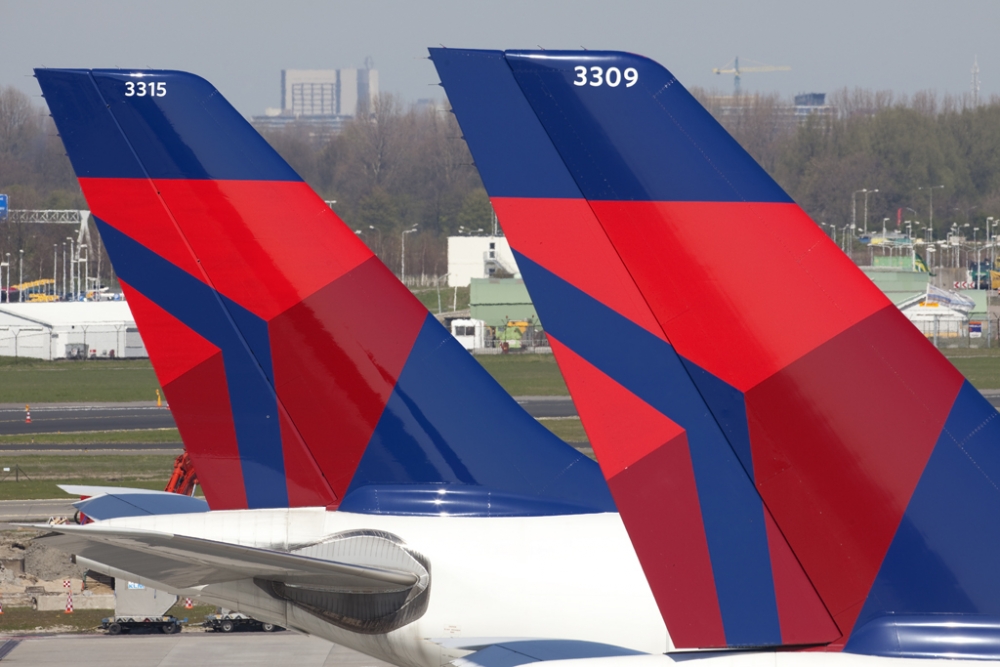Why airline investors are smiling.
13 July, 2017
4 min read


Investing in airlines has never been for the faint-hearted but many of those who did so last year are now finding themselves with a tidy gain.
That’s dependent on which airlines were the subject of the investment but from a global perspective airline stocks at the end of June had outpaced the wider market to collectively end 44 percent higher than last year. By comparison, the FTSE All-World Index was up 16.5 percent.
READ: Emirates slams US airlines
June 2016 marked a low point for airline shares because of worries over the impact of Brexit but the latest figures published by the International Air Transport Association show airline shares have risen by more than 20 percent since the start of 2017.
This included a 4.2 percent rise in June — the third consecutive monthly increase.
“The recent rises in airline share prices indicate that investors are looking through the squeeze on profit margins – from weak yields and higher costs – in Q1,’’ IATA said in its latest Airlines Financial Monitor.
The results vary between regions with the 12-month figures headed by European carriers whose share prices rose by 60.1 per cent. Profitable North American carriers came a close second with a 58.7 per cent average rise and Asia-Pacific carriers trailed at 14.4 percent.
That situation changed in the six months to June. European carriers still topped the field with a 46.6 per cent increase but Asia-pacific airlines made a come-back with a 20.5 per cent rise compared to just 9.9 percent for North American carriers.
The biggest gain in June, 6.3 percent, was also with Asia-Pacific carriers.
A problem for investors has always been the cyclical nature of the airline industry, something that prompted investment guru Warren Buffet to warn people away for the sector. Fortunes have been lost as well as made by investing in airlines.
But Buffet has had a change of heart.
Buffet’s Berkshire Hathaway owned 8 percent of Southwest Airlines, 10.1 percent of American Airlines Group, 7.6 percent of Delta Air Lines and 9.4 per cent United Continental Holdings as of March 31, according to US SEC filings.
Quarterly earnings for Delta released this week were among the best in the airline’s history and help explain Buffet’s change of heart in the US aviation market.
Adjusted pre-tax income for the June 2017 quarter was $US1.85 billion, up $US172 million from the same period a year ago. This delivered an operating margin of 18.4 percent.
A record June quarter operating revenue of $US10.8 billion was up $344 million versus prior year, despite a $US115m hit due to severe storms in Atlanta in early April.
But IATA found pre-tax and interest earnings margins for a sample of 84 airlines in the first quarter was a more modest 4.5 percent, or about half the 8.7 percent seen in the first quarter of 2016.
Net profits were also lower, totaling $US2.4 billion compared to $US4.7 billion a year ago.
The good news was that US shale oil production continued to keep the pressure on oil prices, premium traffic growth held up and overall passenger and freight demand growth remained robust.
IATA is also continuing to see evidence that the downward trend in industry-wide passenger yields has bottomed out.
“It is worth noting that yields remain around 4.5 per cent lower than their year-ago level when measured in constant exchange rate terms,’’ the industry association said.
“ Moreover, there is no sign of any upward trend yet.
“Nonetheless, signs that yields have bottomed out are consistent with an easing in the upward pressure on the breakeven load factor seen during 2016.
“With achieved passengers loads remaining close to all-time high levels, this is underpinning investors’ confidence about airline financial performance over the year ahead.”
Next Article
Qantas triples profit but misses mark

Get the latest news and updates straight to your inbox
No spam, no hassle, no fuss, just airline news direct to you.
By joining our newsletter, you agree to our Privacy Policy
Find us on social media
Comments
No comments yet, be the first to write one.
